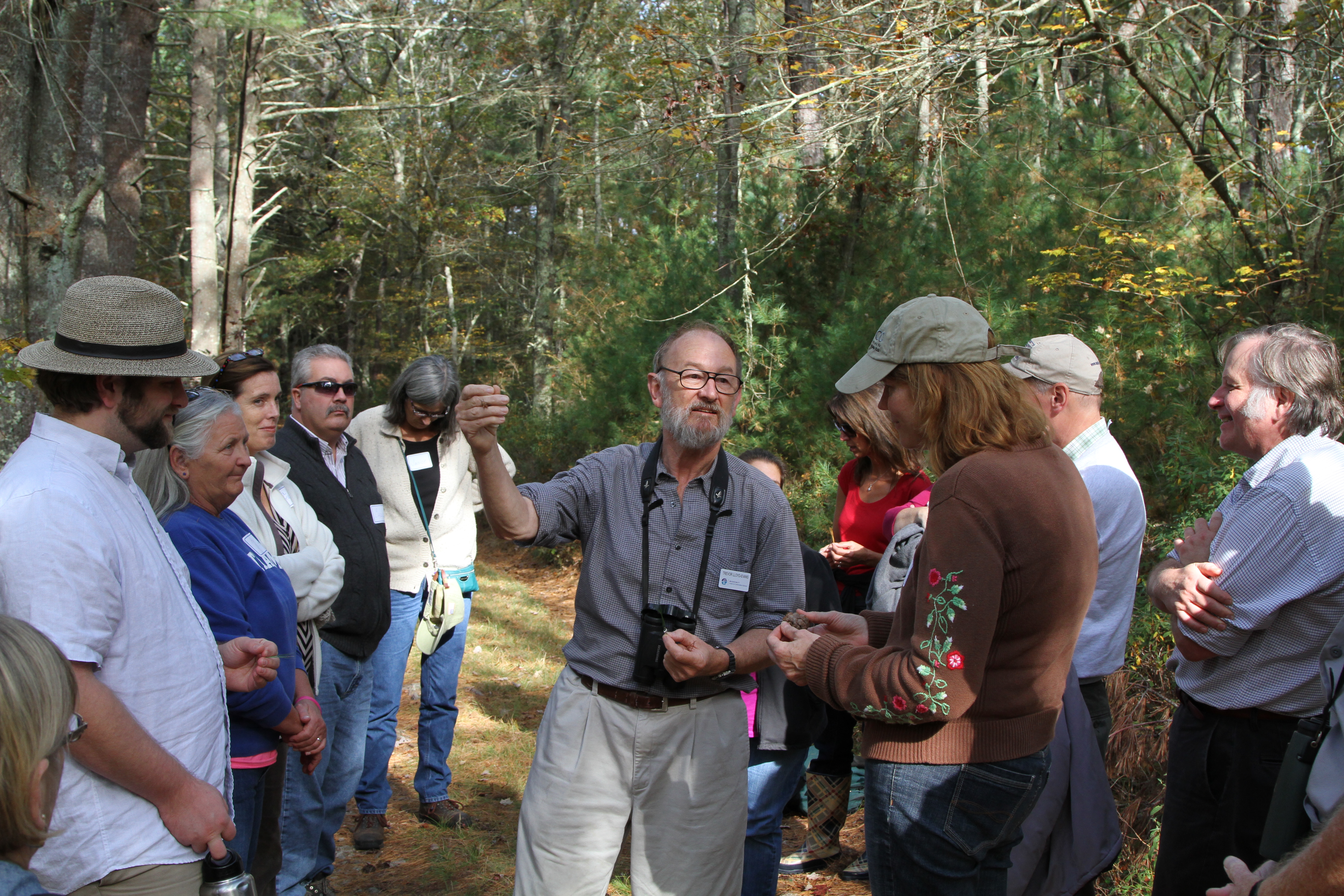Manomet Staff
Trevor Lloyd-Evans is the director of Manomet’s Connecting with Nature program and has led the landbird banding program since 1972. He is spearheading Manomet’s involvement in Climate Lab, a new initiative that teaches educators how their students can collect data on biological indicators of climate change at their own schools.
Climate Lab is a partnership between Manomet, the land conservation organization Wildlands Trust and TERC, a Cambridge-based academic non-profit. TERC is developing the program’s curriculum, while Manomet is providing scientific expertise and training.
Manomet scientists hold workshops for middle school math and science educators where they learn how to teach their students to measure climate change indicators. The teachers use this information to set up their own research transects (“Climate Labs”) on school grounds or nearby properties, where students can engage in standard data collection and analysis. Teachers from three Massachusetts school districts are now participating in a pilot of the Climate Lab program.
Why did Manomet launch the Climate Lab?
Lloyd-Evans: We launched the Climate Lab to take children outdoors to experience natural habitats. Through the program, we are introducing students to the scientific method; they learn the practical collection, recording and interpretation of scientific data. The amazing range of electronic media sources available have certainly informed young people that most scientists believe that the climate is warming, ever more rapidly. Unless they understand that this is happening everywhere – not just in the Arctic, but in our back yards, woods and marshes – they will not understand how it affects them personally. Through Climate Lab, students see birds and measure rates of leaf out in spring to help document the changes themselves.
What climate change indicators do the students participating in Climate Lab learn to measure?
Lloyd-Evans: The students learn to collect data on biological climate change indicators including average percent canopy, shrub and herb cover, leaf development, tree height and tree DBH (diameter breast height). They will see and identify plants, invertebrates and birds to understand firsthand the connections between habitat, weather, food and vegetation cover.
How will the data collected by the students participating in Climate Lab be used?
Lloyd-Evans: We will create a database of local climate change impacts which will be accessible to participating schools. Students will have access to Manomet data for spring arrival dates of common bird species and will be able to use their own data to make connections between timing of leaf out, insect hatching and when bird species are arriving back to the northeast in spring. Over time, the data collected from standard locations near the schools, combined with Manomet’s 40 plus years of migratory bird data, will demonstrate differences due to seasonal and local weather, but also underlying changes in the long-term climate.
Who is participating in the pilot of the program?
The pilot includes middle school math and science teachers from three school districts in southeastern Massachusetts – Duxbury, Sandwich and Wareham. To date, 13 teachers received training and are now piloting the program in six schools – engaging almost 500 students.
What is on the horizon for the Climate Lab?
Lloyd-Evans: As always – funding, funding, funding!
Next steps include recruiting additional schools for participation in the 2014-2015 school year, especially in urban and underserved communities, modifying the curriculum as needed and taking the Climate Lab program to at least regional scale within three years.
Once we have provided talented teachers with the curriculum and tools to teach and take the students outdoors, we will have the next generation of voters and decision-makers speaking and working from a basis of personal involvement. Climate change is happening now; they will have to deal with its impacts in the future.
 Trevor Lloyd-Evans has directed Manomet’s landbird banding program since 1972. He served on the faculty of the Field Biology Training Program at Manomet from 1977 – 1984. Since then, he has trained many interns and volunteers and has taught thousands of school-age children and adults about bird biology, conservation and the impacts of climate change on migratory bird species. Read more about Trevor in his bio.
Trevor Lloyd-Evans has directed Manomet’s landbird banding program since 1972. He served on the faculty of the Field Biology Training Program at Manomet from 1977 – 1984. Since then, he has trained many interns and volunteers and has taught thousands of school-age children and adults about bird biology, conservation and the impacts of climate change on migratory bird species. Read more about Trevor in his bio.






